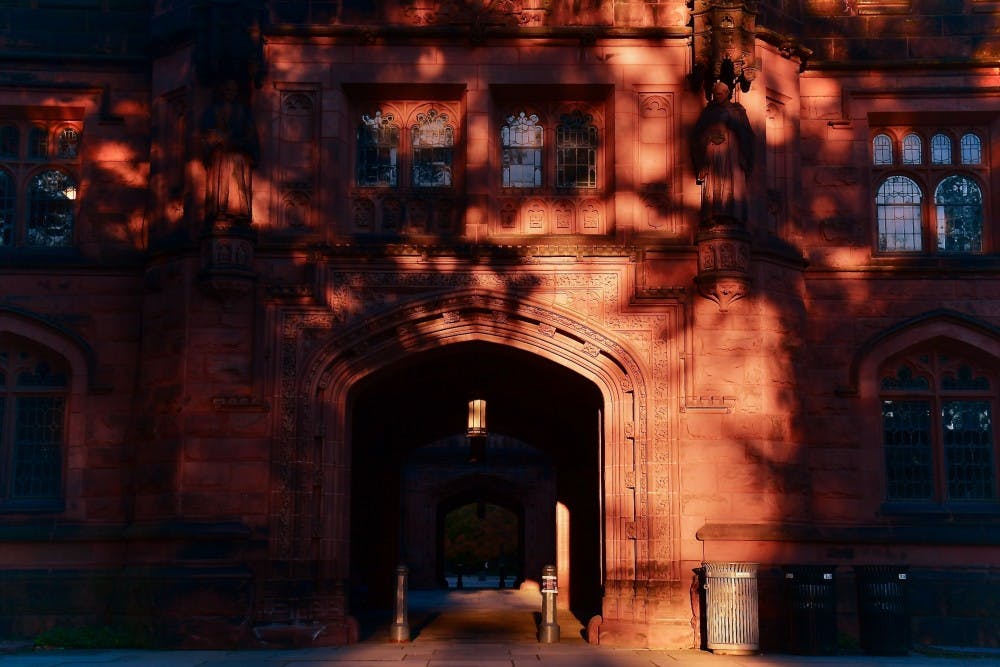Each night, likely while you’re sleeping, we send our page files to a printer in Philadelphia. A few minutes later I get a call — usually from Mike or Leo — to tell me the pages are good to go.
As I walk to my room in 1903 Hall, the sounds of the printing press I heard on the phone echo in my mind. I imagine the pages flying across the press and stacking neatly at the end of the line of machines.
When you pick up a copy in your dining hall, residential college, or eating club, I hold my breath, praying there isn’t a ghastly typo adorning the front page. British journalist G.K. Chesterton once wrote, “Seen from the outside, [the newspaper] seems to come round as automatically as the clock and as silently as the dawn. Seen from the inside, it gives all its organisers a gasp of relief every morning to see that it has come out at all; that it has come out without the leading article upside down or the Pope congratulated on discovering the North Pole.”
I tell you this not just so that you understand how a daily paper materializes each morning — an antiquated fact soon to be forgotten in the internet age — but to illustrate the dedication of your fellow students.
With well over 150 students contributing to its production, The Daily Princetonian is one of the largest student organizations on campus. We have a collective mission that is larger than just the journey from newsroom production to Philadelphia printing press to dining hall. It’s a mission that drives us every day to report the truth, even when the truth is ugly.
In an age where truthiness is common, some news organizations lean toward mimicking state media, and the absurd becomes the norm, that quote has become more prescient. What your fellow students are doing every day is important, not just on our campus and our community. It’s important because the ‘Prince’ has an educational mission: Who we train and prepare for a career in journalism will compose the next generation of newsrooms.
Journalism today has incredibly high barriers to entry. It requires unpaid internships or low-paid fellowships just to have clips. It requires a pricey degree from a fancy school just to make connections with future employers who will not deign to pay you living wage. Newspaper unions that could protect journalists are busted, and copy editors are deemed superfluous. For freelancers, editors ask to “repurpose” articles but refuse to pay their authors. It has become a pay-to-play industry. Yet people are still asking why it is mostly white and male.
The solution seems self-evident to me, and I’m sure to many of you reading this. For a profession so essential to democracy, lowering those barriers and giving journalistic education to more people is critical. An organization like the ‘Prince’ must have a deep commitment to training a diverse generation of journalists to fill tomorrow’s newsrooms.

That’s why we’ve published the editorial we did today. We have not met this obligation, but we promise to do better. We have and we will continue to make it part of our mission to ensure that voices previously excluded are prominent in our newspaper and are encouraged and supported to be leaders of the organization.
The obligation of the ‘Prince’ to train and educate future journalists includes finding ways to lower our own barriers to entry. It means training students with no background in journalism, who come from underrepresented groups, and those with greater financial needs. It’s our job even as a student organization. Until recently, the University did not even offer a journalism certificate. Training new journalists from diverse backgrounds, both in our newsroom and through the University’s Ferris journalism program, helps ensure that the basest injustices and abuses of powers are exposed.
In “Southern Horrors: Lynch Law in All Its Phases” (1892), investigative journalist Ida B. Wells wrote, “The people must know before they can act, and there is no educator to compare with the press.” And the press can only educate if newsrooms represent the communities they cover.
I quote these famous people not only because they can say what I want to much better than I can, but also to illustrate journalism’s long history. It has stood in and stood up when things are unjust or just plain evil. It tells stories, sometimes painful, of forgotten or overlooked people.

That’s our job at the ‘Prince.’ It’s what we try to do every day, albeit sometimes imperfectly. More than 150 people have worked tirelessly this year to better our journalism and to serve you, our community in and around this university. I am incredibly grateful for every single minute they have logged. We have built a community that supports each other even when it’s hard. To work with you, ‘Prince’ staff, has been the most fulfilling work I have ever done.
I am grateful for the opportunity to have served as editor-in-chief, and I am excited to see Chris Murphy ’20 lead the 143rd Board.
Thanks for reading.
Marcia Brown is a history major from Shaker Heights, Ohio. She can be reached at marciagbrown19@gmail.com on Twitter at @Marcia_Brown9.








